Healthcare Start-up
Well-being GPS
Designing a more attainable behavior change plan
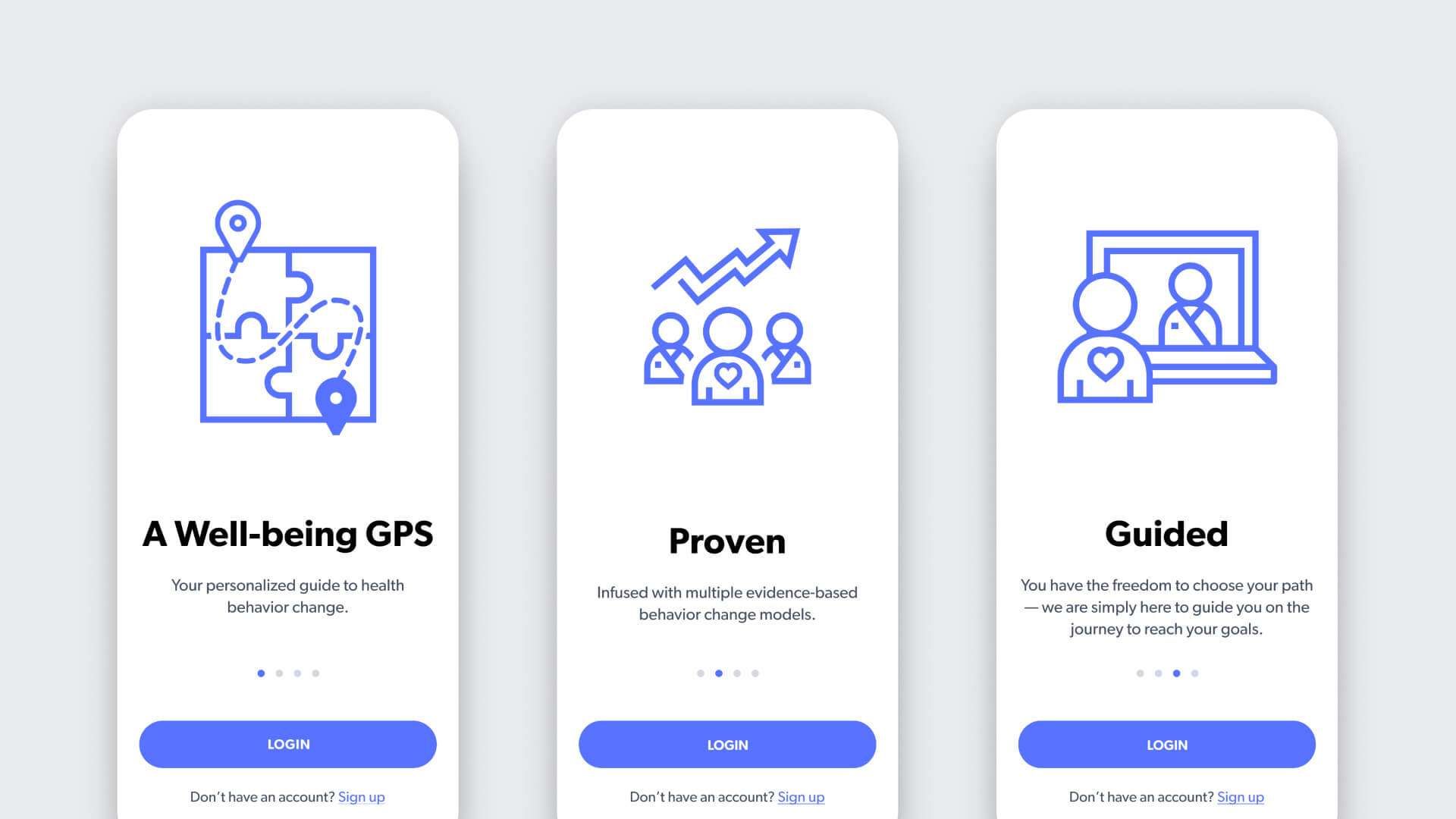
A mental health organization wanted to transform its program and management tools for improving patient connections into a service to be licensed to other providers.
Discovery
Through a series of immersion sessions and workshops to discuss pain points and the goals of all parties – business, clinicians, and patients – divergent priorities were uncovered.
Business leadership highlighted their focus on demonstrating operational efficiency – maximizing performance of patients, providers, and revenue.
While for the therapists, the need to truly listen, understand patients’ unique situations, and develop treatment plans their they could adhere to was a major priority.
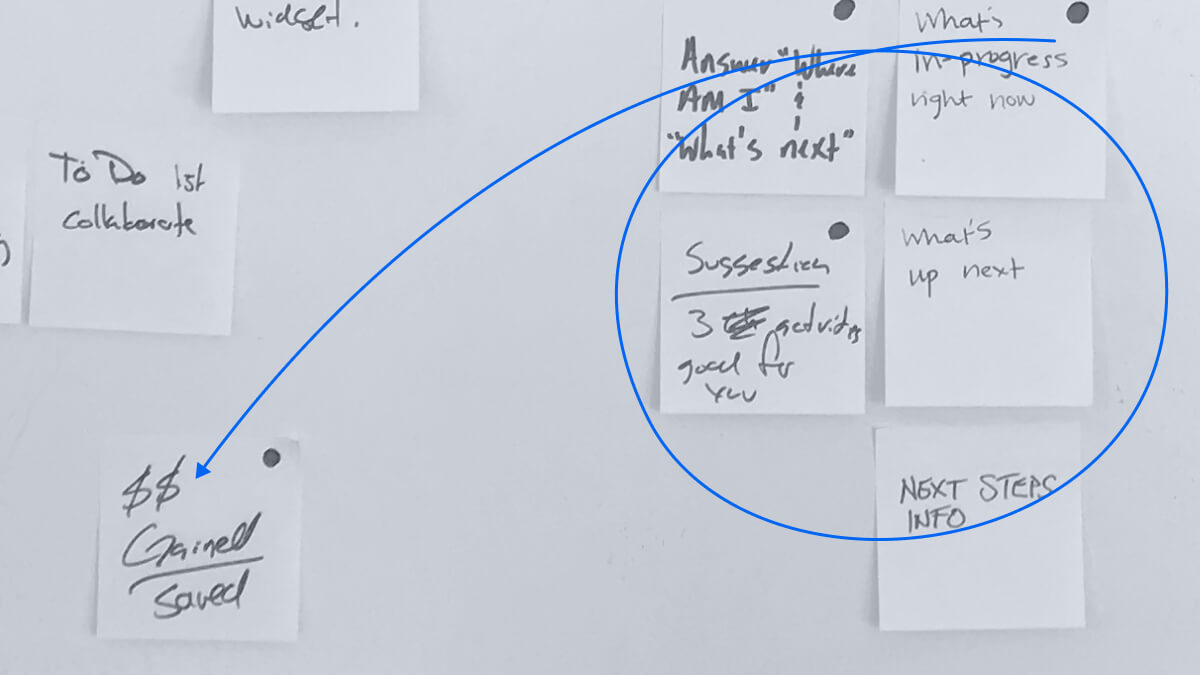
Project Pivot
Although immersion sessions revealed varying priorities, the team managed to identify and prioritize a new opportunity for generating value.
Patients' lack of adherence to change plans is the primary obstacle to improved well-being. Due to old habits, a lack of support or accountability, inconvenience, or the inability to see immediate results, many struggle to maintain commitment to their plan.
Addressing adherence obstacles requires a strategic shift in focus. Rather than solely relying on practitioner tools, emphasizing ways for patients to engage directly with the platform creates an opportunity to deliver better outcomes for all users.
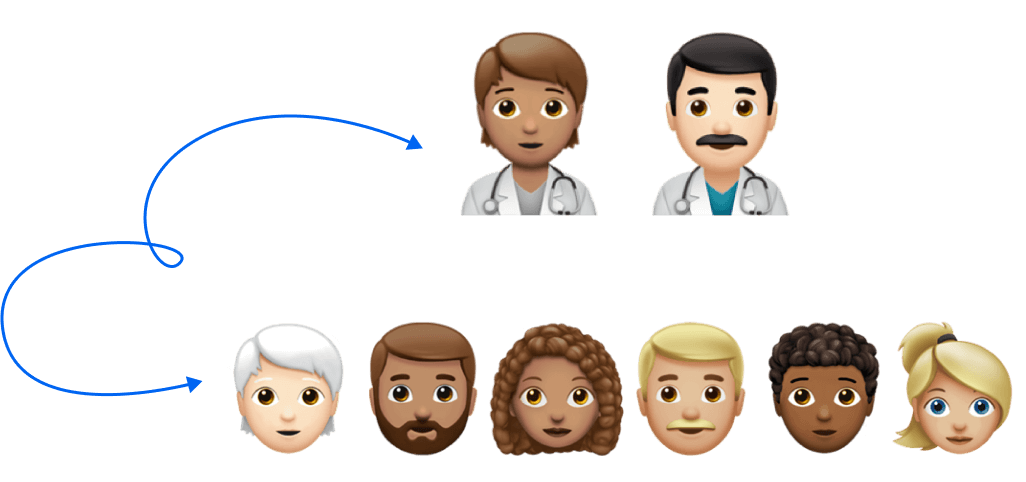
Reimagined mission statement
“Empower patients with guided and achievable behavior change tools to measurably improve health outcomes.”
A New Approach to Investigate
With a more direct engagement approach aimed at encouraging daily participation, goal-setting, ongoing encouragement, and with the ability to track incremental progress, patients would be more likely to sustain positive lifestyle changes, leading to better health outcomes.

Strategy & Planning
Supported by a new team of healthcare technology and business experts, we began a process of designing, prototyping, and testing our ideas to create an engaging experience that motivates patients to adopt sustainable health practices.
Working with the expanded team, we refined the strategy through a series of workshops for delivering a more "sticky" change plan. This plan would need to function both as a fully self-guided experience as well as integrated into the practice's existing patient work. At the same time, the team envisioned how the strategy would enable the business to take advantage of new growth opportunities.
Two Track Approach
An aggressive timeline and the existence of several technical and experience gaps that needed to be resolved required commitment to a plan to deliver before all things were designed and tested.
By prioritizing less complex flows, such as onboarding, we were able to simultaneously work on a visual design framework and align it with the product narrative and brand vision. This allowed us to allocate time to exploring more complex features and user experience challenges.
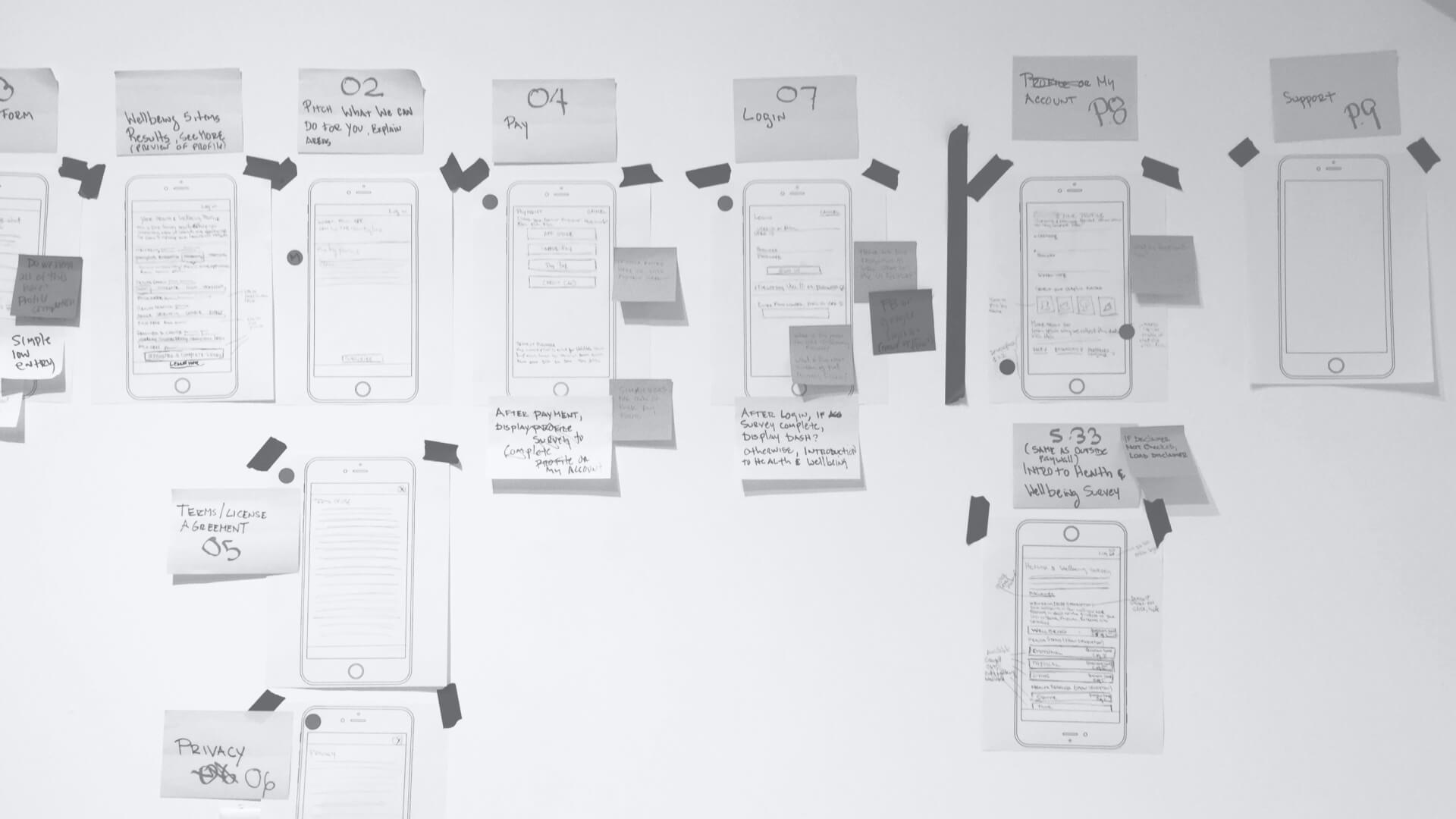
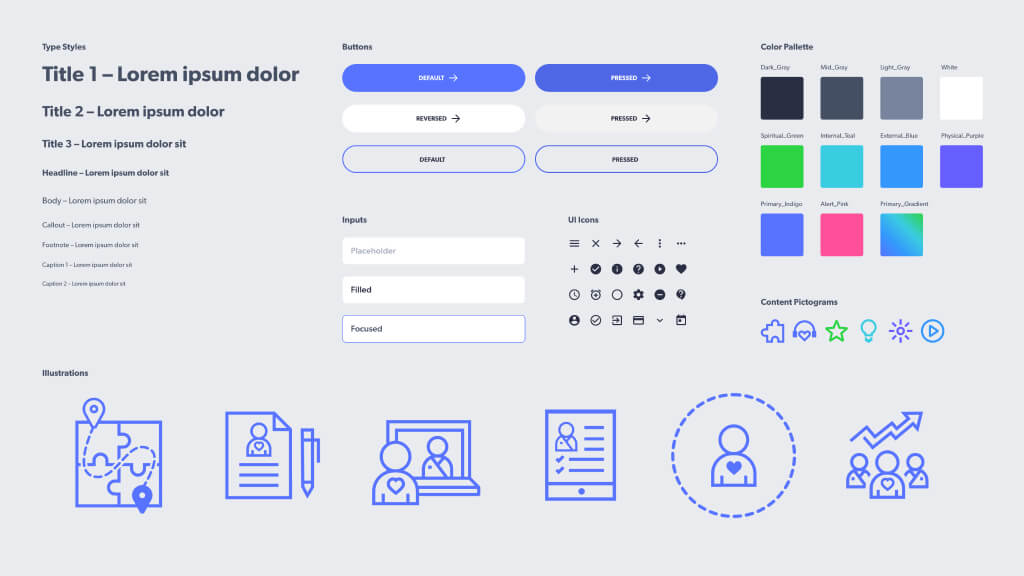
Self-Guided Assessments
What worked for the in-office assessment needed to be optimized for self-managed plans.
Duplicating the provider facilitated intakes and manual workbooks for patients was not a good experience for our testers. The feedback we heard informed us that smaller time commitments to completing the work would be a requirement.
The solution was to break down monthly therapist-facilitated assessments into weekly self-guided check-ins, which made it easier for users and patients to fit into their routines.
Testing the the new assessments revealed that users commented that Likert scales didn't accurately capture how they felt – they often wanted to identify in between values. Abandoning set number of steps and moving to “infinite” values provided by a new slider gave our testers a better sense of accuracy and reduced the time it took to complete their assesments.
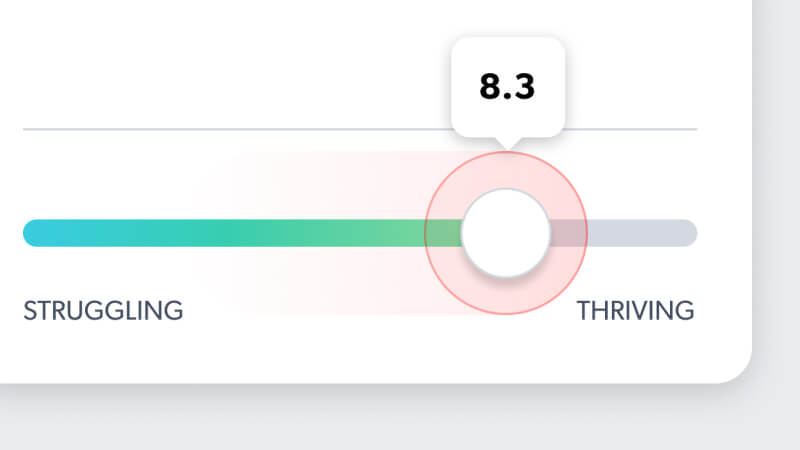
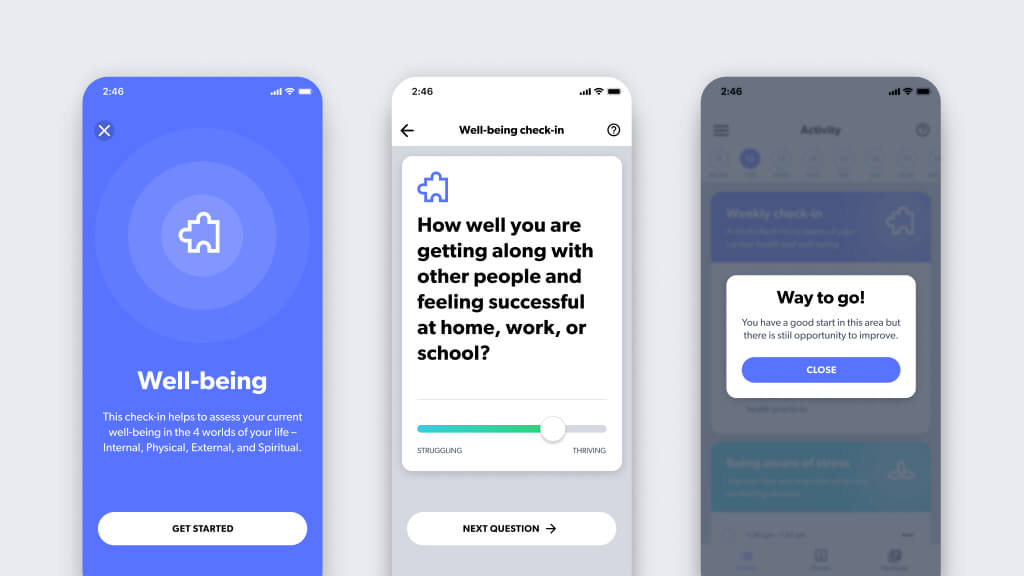
Providing patients with a 360-degree perspective of their overall health and wellness journey enables them to gain valuable insights and identify areas for improvement.
By helping patients to visual their progress across multiple dimensions, so that they may have a deeper understanding of their well-being, pinpointing specific domains that may need attention or adjustments. The portrait empowers individuals to make informed decisions, set meaningful goals, and engage with strategies to optimize their overall wellness.
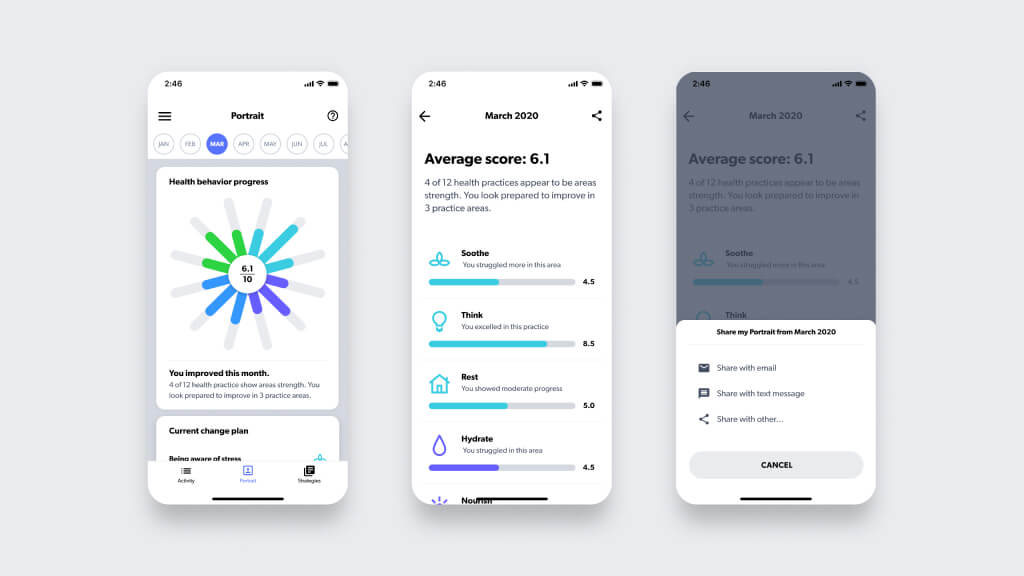
Outputs & Outcomes
As a proof-of-concept, the project created a mobile-friendly patient assessment process, a framework for self-guided change plans, and a new user acquisition strategy for the business.
- Functional hybrid mobile app
- Novel interface for recording user sentiment
- “Health Portrait” progress tracking dashboard
- Design pattern library and documentation
- Pilot program with select patient group
- Peer-to-peer support group capabilities
- EMR integration